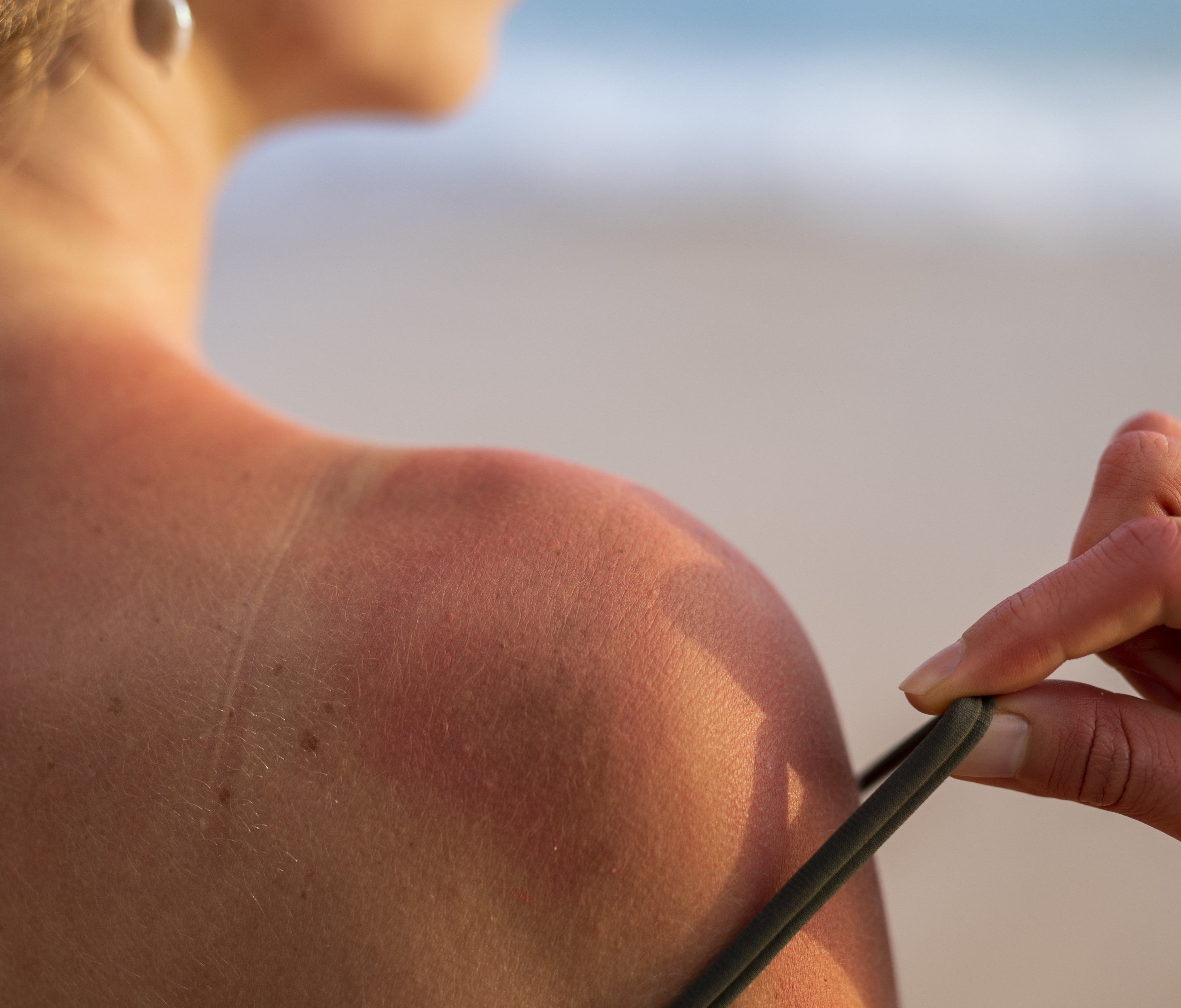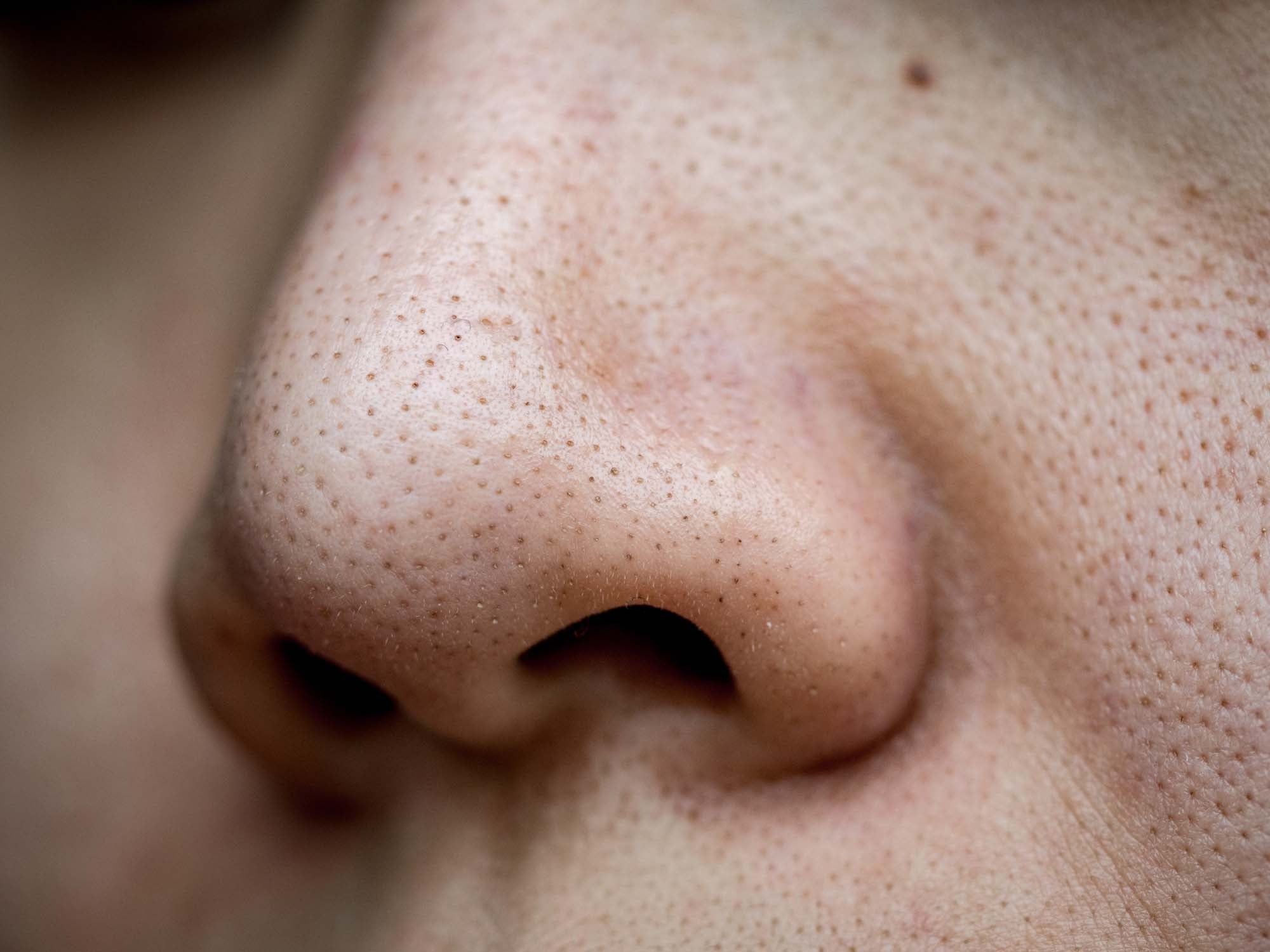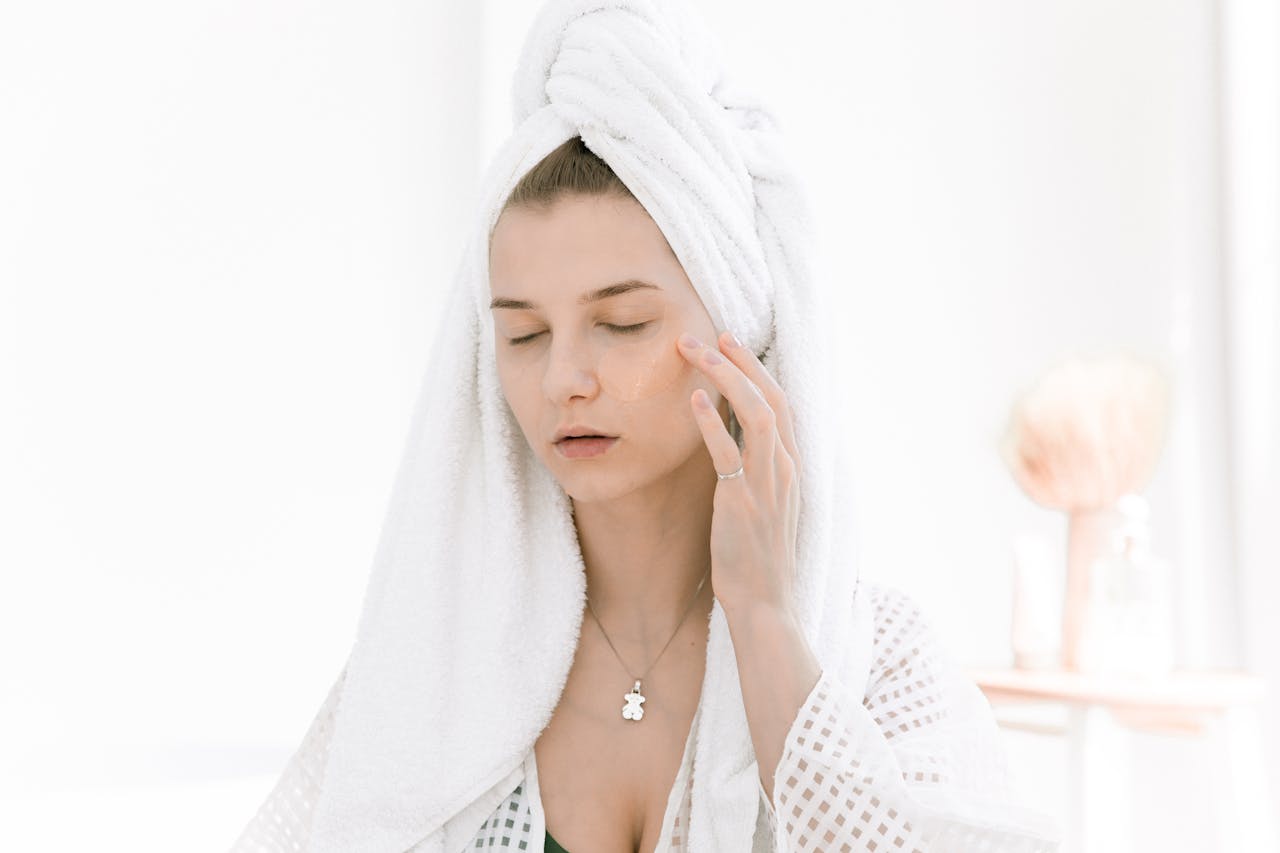How to Even Out Your Skin Tone: A Complete Guide

Uneven skin tone can be frustrating, but understanding its causes and remedies can help you achieve a more balanced complexion. This expert guide will walk you through everything you need to know to address uneven skin tone effectively.
What Does Uneven Skin Tone Mean?
Uneven skin tone is a common concern affecting many individuals, impacting appearance and confidence. It manifests as variations in color and texture, leading to a complexion that may appear blotchy or inconsistent. This condition can affect anyone, regardless of skin type or ethnicity, and can vary in severity from mild discoloration to pronounced patches.
Causes of Uneven Skin Tone
Understanding the root causes of uneven skin tone is pivotal in formulating an effective treatment approach. This condition can be attributed to a variety of factors, both intrinsic and extrinsic, that influence our skin's appearance. Here are some of the most common causes of uneven skin.
1. Sun Exposure
Excessive sun exposure is one of the primary culprits behind dark spots and hyperpigmentation. Prolonged UV exposure can damage skin cells and lead to an overproduction of melanin, resulting in uneven skin tone. It's essential to wear sunscreen and protective clothing to shield your skin from harmful rays.
Related: 4 Best Sunscreens for Sensitive Skin
2. Hormonal Changes
Hormonal fluctuations play a significant role in skin health, especially during pregnancy, menstruation, or menopause. These changes can trigger melasma, a condition characterised by dark, blotchy patches on the skin. Monitoring hormone levels and maintaining a balanced diet can help mitigate these effects.
3. Skin Conditions
Various skin conditions, including acne, eczema, and rosacea, can lead to discoloration and inconsistencies in skin tone. Acne can leave behind post-inflammatory hyperpigmentation, while eczema may cause redness and dark spots due to inflammation. Seeking medical advice and appropriate treatments can help manage these conditions and improve skin appearance.
4. Ageing
As we age, our skin naturally undergoes changes, including a decrease in collagen production and a slower renewal process. This can lead to the appearance of age spots and a dull complexion. Regular moisturizing and the use of anti-aging products can help combat these effects.
5. Diet and Lifestyle
Poor diet and lifestyle choices, such as excessive alcohol consumption, smoking, and a lack of hydration, can significantly affect skin health. Nutrient deficiencies can lead to a dull appearance and uneven skin tone. A balanced diet rich in vitamins and antioxidants, along with adequate water intake, is crucial for maintaining vibrant skin.
6. Environmental Factors
Pollution, harsh weather conditions, and exposure to chemicals can also impact skin tone. Pollutants can cause oxidative stress, leading to premature ageing and dark patches. Using gentle skincare products and regularly cleansing your skin can help protect against these external aggressors.
How Uneven Skin Looks
1. Sunburn

Sunburn is an inflammatory response to excessive UV radiation, marked by redness, pain, and sometimes blistering and peeling. It occurs when skin cells are damaged, prompting melanin overproduction for protection. As the skin heals, it may peel or darken, leading to hyperpigmentation and an uneven complexion. This highlights the need for sun protection and proper skincare. Using broad-spectrum sunscreen helps prevent immediate harm and maintains skin integrity and glow.
2. Melasma
Melasma is a common skin condition that causes dark patches on the face, often referred to as the ‘mask of pregnancy.’ Triggered by hormonal changes, sun exposure, and certain medications, it results from an overproduction of melanin. Effective management includes sun protection, topical treatments like chemical peels or pigment laser therapy to lighten pigmentation and promote an even complexion. Treating melasma restores skin balance and boosts confidence, allowing individuals to embrace their beauty with grace.
3. Post-inflammatory Hyperpigmentation

Post-inflammatory hyperpigmentation (PIH) appears as dark patches or spots on the skin after inflammation from conditions like acne, eczema, or injuries. These brown, gray, or black spots vary in size and are more noticeable on deeper skin tones. PIH occurs naturally as the skin produces excess melanin during healing. Common triggers include acne breakouts, eczema flare-ups, and skin trauma, with sun exposure making pigmentation worse.
While generally harmless, PIH can affect self-esteem. Effective treatments include topical solutions like retinoids, chemical peels, microdermabrasion, and targeted laser therapies. A holistic skincare routine focused on prevention and treatment—such as sun protection, gentle exfoliation, and brightening products—can help achieve a more even complexion and boost confidence.
4. Age spots
Age spots, or solar lentigines, are flat brown or black blemishes that appear on sun-exposed skin areas like the face and hands due to prolonged UV exposure and aging. While harmless, they highlight the need for diligent sun protection and careful skincare.
To address age spots, daily use of broad-spectrum sunscreen is vital to prevent new spots and protect against UV damage. Topical treatments with hydroquinone, retinoids, or vitamin C can help even skin tone, while professional options like chemical peels and laser therapies may be suitable for more severe cases. A holistic approach, including proper hydration, a nutrient-rich diet, and healthy lifestyle choices, will enhance skin vitality and confidence.
How to Even Skin Tone
1. Use Sunscreen Daily
Always apply a broad-spectrum sunscreen with a SPF 50 to shield your skin from UV damage and prevent dark spots.
2. Exfoliate Regularly
Exfoliate 2-3 times a week to remove dead skin cells and encourage new cell growth, which helps achieve a smoother, more even tone.
3. Incorporate Brightening Ingredients
Choose products with Vitamin C, niacinamide, or glycolic acid, as they can help reduce pigmentation and enhance your skin's radiance.
4. Stay Hydrated
Drink plenty of water daily; hydration is key for maintaining healthy skin and a vibrant complexion.
5. Maintain a Healthy Diet
Consume a balanced diet rich in antioxidants, vitamins, and minerals, focusing on fruits and vegetables that support skin health.
Best Skincare Ingredients and Products To Combat Uneven Skin Tone
1. Vitamin C

Dermaceutic Tri Vita C30 Serum with 30% Vitamin C

iS Clinical Super Serum Advance+
Vitamin C is a powerful antioxidant that helps even out skin tone, reduce dark spots, and brighten the complexion, making your skin look more radiant and youthful.
2. Niacinamide

Biopelle KNR Serum with 4% Niacinamide
Niacinamide is known for its ability to reduce redness, minimize the appearance of pores, and improve overall skin texture. It also helps to strengthen the skin barrier and keep it hydrated.
3. Retinol

iS Clinical Retinol+ Emulsion 0.3
Retinol is a form of vitamin A that encourages cell turnover and can significantly improve pigmentation issues, fine lines, and wrinkles. It’s a staple for anyone looking to achieve smoother, clearer skin.
4. Alpha Arbutin

Dermaceutic Dual+ with Alpha Arbutin
Alpha Arbutin is a gentle skin brightener that helps to reduce dark spots and hyperpigmentation, promoting a more even skin tone without irritation.
5. Kojic Acid

Kojic Acid is derived from mushrooms and is effective in inhibiting melanin production, making it a great option for brightening the skin and reducing discoloration.
6. Licorice Root Extract

Licorice Root Extract has soothing properties and can help brighten the skin, reduce the appearance of dark spots, and even out skin tone.
7. Azelaic Acid

Azelaic Acid is known for its ability to treat acne and rosacea while also helping to fade dark spots and improve skin texture, making it ideal for addressing uneven skin tone.
8. Naturally-derived Brighteners
Ingredients like Norwegian kelp extract, sugar cane extract, and mushroom extract work to gently exfoliate and even out skin tone, revealing a brighter, more radiant complexion.

iS Clinical Brightening Serum - 15ml
When to Get Professional Treatment to Even Out Skin Tone
If home remedies aren't yielding the desired results, it may be time to explore professional treatments that offer more targeted solutions for uneven skin. To ensure the best approach for your unique needs, it's advisable to consult an expert who can provide personalised advice based on your skin type and specific concerns. This tailored guidance will help you choose the most effective treatment plan for achieving the clear and smooth skin you desire.
Expert Treatments for Uneven Skin Tone
1. Chemical Peels

Chemical peels are a popular skincare treatment that effectively removes the outer layers of damaged skin. By using a solution that exfoliates the skin, this treatment promotes a more even complexion and can help reduce the appearance of fine lines, acne scars, and sun damage. Patients often notice brighter, smoother skin after just one session, making it a favored choice for those seeking rejuvenation.
2. Laser Therapy

Laser therapy is an advanced treatment that targets specific areas of pigmentation and can significantly improve overall skin tone. This non-invasive procedure uses focused light energy to break down melanin deposits, reducing spots and uneven coloration. Additionally, laser therapy stimulates collagen production, leading to a more youthful appearance over time. It’s suitable for a variety of skin types and requires minimal downtime.
3. Microneedling

Microneedling is a cutting-edge technique that involves creating tiny punctures in the skin to stimulate the body’s natural healing processes. This treatment encourages collagen production, which can effectively diminish the appearance of fine lines, wrinkles, and discoloration. Ideal for those looking to improve skin texture and firmness, microneedling can be combined with serums or growth factors to enhance results, making it a versatile option for various skin concerns.
Treatment for Uneven Skin Tone FAQs
Can uneven skin tone be a sign of an underlying health issue?
Yes, sometimes it can indicate hormonal imbalances or other health conditions.
What are the most common mistakes people make when trying to even out their skin tone?
Neglecting sunscreen and over-exfoliating are common errors.
How to maintain even skin tone after achieving desired results?
Continue using sunscreen, maintain a regular skincare routine, and stay hydrated.
Transform Your Skin Today with Skin to Heart
Achieving an even skin tone is a rewarding journey that requires dedication and the right approach. With the right treatments and high-quality products, you can truly transform your complexion and boost your confidence. At Skin to Heart, we understand the importance of personalised skincare, which is why we offer a carefully curated range of products specifically designed to help you achieve your skincare goals. Consult with our skin experts and take the first step toward radiant, even-toned skin! Your journey to healthier skin starts here!
- Tags: skincare uneven skin
0 comments

